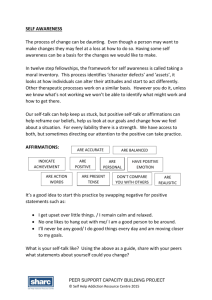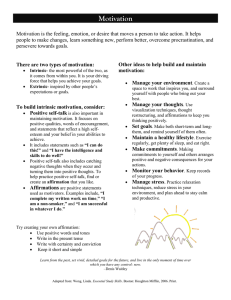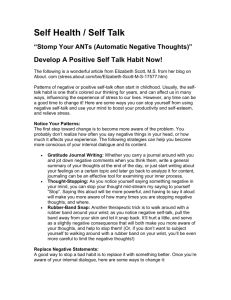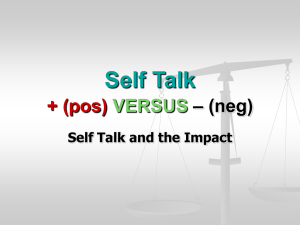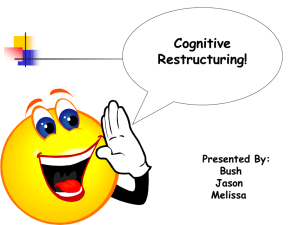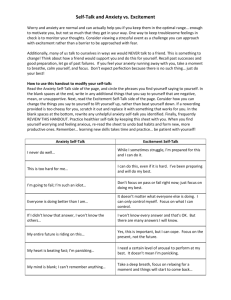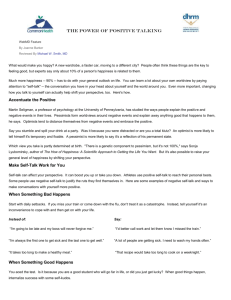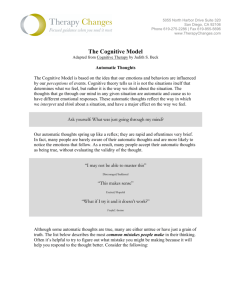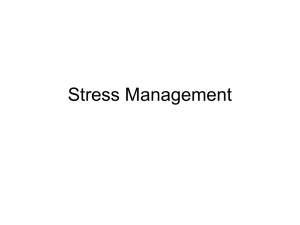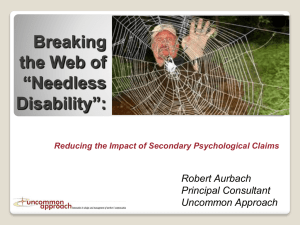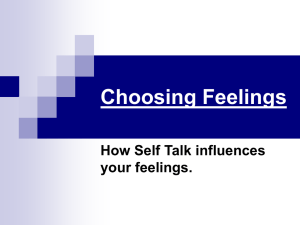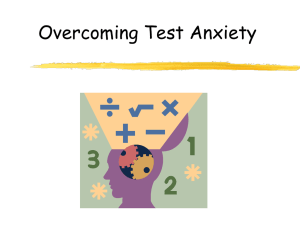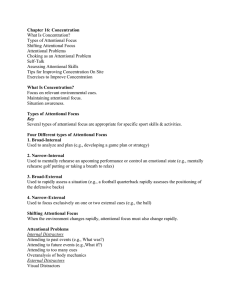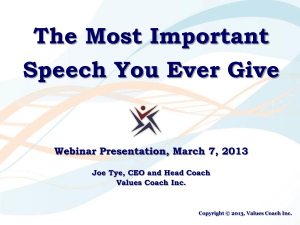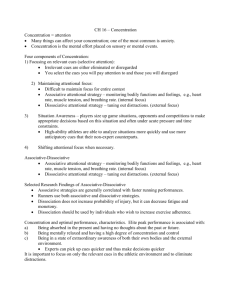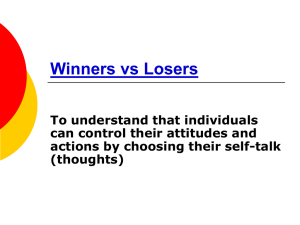Mental Skills for Triathlon
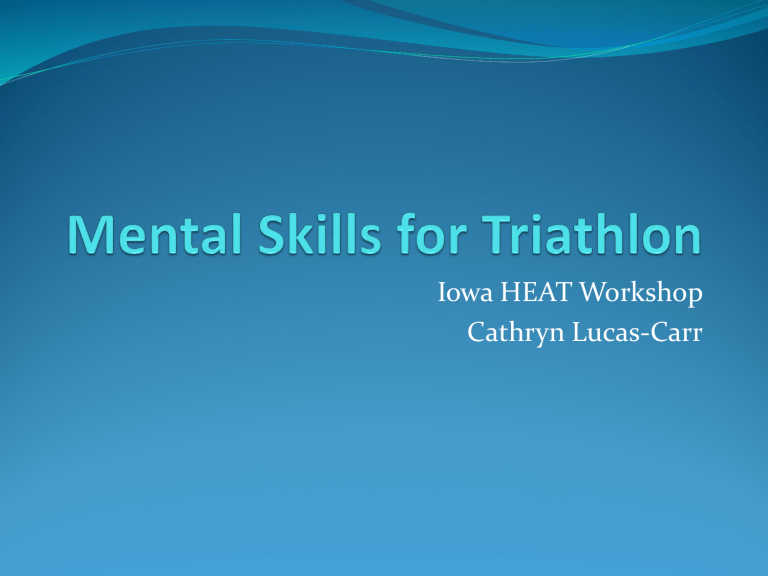
Iowa HEAT Workshop
Cathryn Lucas-Carr
About Me!
PhD student in Health & Sports Studies
Working toward AASP certification as a Sport
Psychology Consultant
Runner & triathlete!!!
Why Mental Skills for Triathlon?
Triathlon – 3 sports (or 4 if you count the transitions!!!) in one
Do you have a discipline that you’d say is your weakness?
You might find that mental skills will help!
Lots of time out on the course stuck inside our own heads!!
“Maintain your strengths, train your weaknesses”
Mental Skills for Physical Activity &
Competition
Focus & Concentration
Negative Thought Stoppage & Positive Self-
Talk
Overcoming Mistakes or Setbacks
Relaxation, Visualization & Imagery
Controlling Emotions & Anxiety
Goal Setting
Training Strategies
Race Strategies
Focus & Concentration
Internal, Narrow External, Narrow
(Rehearse) (Act/React)
Internal, Wide External, Wide
(Analyze) (Assess)
Focus & Concentration
• Workshop Practice
– 99s
– Walkabout
Which were you able to better concentrate during?
During periods with “no distractions,” did you find your mind wandering?
What did you think about?
•
•
Focus & Concentration
Practice at Home
– Counting breaths w/ and w/o distractions
– Word searches w/ and w/o distractions
Practice while training
– Think about a specific topic for 30 seconds without interruption (build from there!)
– Bring your focus to various parts of your body, and complete “status checks”
– Play “I spy” games while training
What happens when the workouts are just really tough???
Internal Thoughts
Focus specifically on how your body is feeling or technique
Control breathing, count strides, strokes, RPMs
External Thoughts
Turn your attention away from screaming lungs/muscles
Have a “go to” thinking subject
Play internal decorator to the houses you pass
Other Strategies
Break the workout/race into do-able sections
Mantras
Mantras
Short, self-affirming phrases to help you stay focused and/or get you through the tough spots
Keep it Short & Simple
One sentence or less
Keep it Positive
Moving toward a goal or challenge
Keep it Energized
Use action verbs or adjectives
Provide Instructions for yourself
Get up this hill!
Negative Thought Stoppage &
Positive Self-Talk
Self-talk is a way we internalize our environment, thoughts, and behaviors.
Our self-talk often reflects our mood, and can often spiral out of control. This is called negative self-talk.
With negative self-talk, many athletes talk themselves out of a good performance.
We can develop positive self-talk
Negative Self-Talk
How can we stop negative self talk?
We can learn to recognize our triggers and intercept negative self-talk before it begins!
We can create positive affirmations to reinforce our confidence!
We can replace our negative thoughts with positive ones!
Learning positive self-talk can keep us relaxed in a variety of situations!
Negative Thought Stoppage
Specific strategies for reversing negative self-talk
Recognizing when we are starting have negative thoughts
Thought stoppage w/ physical or verbal cue
Replacing a negative thought with a positive affirmation
Performance reviews and achievement reminders
Visualization & Imagery
What is Imagery?
Seeing yourself performing & rehearsing a skill
Imagining yourself competing in a specific situation
Not just seeing: Incorporate sounds, smells, tastes, & feelings
Reproduction of ALL sensory information that produces a skill
How do you do visualization?
Maintain a positive approach. Picture yourself completing the skills well, the perfect pass or shot.
Image in ‘real time’. Imagine yourself completing the skill at the speed you would normally complete it.
Timing is a critical part of sport, and getting your body prepared for ‘real time’ situations will help you when those situations arise.
Feel the movements. Focus on how all the muscles involved feel during that skill, how your equipment feels. You should really feel as if you are in the situation.
Practice
Transition Visualization
1 st : visualize the set-up of your transition
2 nd : visualize yourself going through the transition, from the swim exit, to your transition space, and out the bike start.
Visualizing a problem or setback can help you stay calm and deal with it when it happens
Taking care of a flat tire
Your reaction to “dead legs” on the run
Relaxation
Staying relaxed is a good way to ensure a good performance.
As with the other mental skills we must PRACTICE relaxation
Progressive Muscle Relaxation (PMR) is a good way to learn how to feel when your muscles are relaxed
Then you can do “targeted spot checks”
